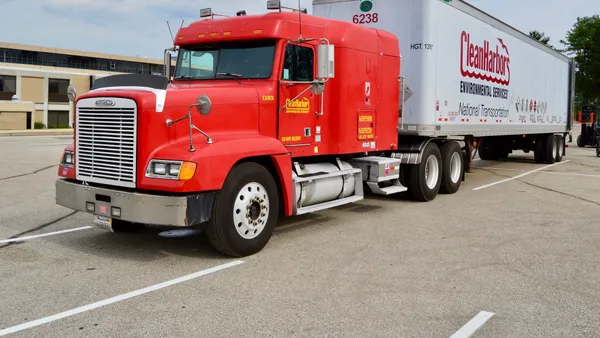UPDATE: Nearly 40 people have now filed notices of claim to sue Wheatfield, NY for up to $60 million each over alleged health effects from the Niagara Sanitation Landfill, as reported by the Buffalo News. They have 15 months to follow through by filing lawsuits.
On Feb. 6, the town board appropriated close to $77,000 from surplus funds to put toward building a long-promised fence around the site. An expected $75,000 state grant will help cover the remaining costs. Design specifications are now being completed by the town's engineering firm for a 4,200-foot chain link fence and bids will be solicited within about a month. Town Supervisor Robert Cliffe said he hopes to have the fence completed this year.
Dive Brief:
- At least 21 residents have filed notices of claim, totaling nearly $1.3 billion, to sue the town of Wheatfield, NY for its alleged failure to contain contamination at the closed Niagara Sanitation Landfill, as reported by the Niagara Gazette.
- According to one attorney for some of the residents, health issues from alleged exposure include liver cancer, respiratory complaints, headaches and nervous system disorders, as reported by the Buffalo News.
- The state Department of Environmental Conservation (DEC) maintains that all contaminated sediment and groundwater has remained within the site's boundaries. Yet the site is currently unsecured, and a popular spot for all-terrain vehicles, so the town is working to secure the estimated $152,000 needed to build a fence around it.
Dive Insight:
While Wheatfield has owned this site since the mid-1950s, DEC has been overseeing the remediation work and the process has been a long one. Toxic waste from the Love Canal landfill was moved there by a separate state agency in 1968 and DEC later ordered that it be removed starting in 2014. After dozens of truckloads of material were taken away, DEC reclassified the site as a high risk to public health in order to qualify for Superfund status and recoup remediation costs from companies that had used the site in the past.
Since then, remediation plans have been in flux though the state has said it aims to complete the process by 2019. A post from Town Supervisor Robert Cliffe on Wheatfield's website indicates that polychlorinated biphenyls from electrical sources, various hydrocarbons from auto repair shops and other waste from industrial sites have been detected in prior state tests.
By filing these notices the plaintiffs now have 15 months to submit their lawsuits and no clear solution is available from state regulators. This ongoing saga can be expected to continue for much longer, with the town of Wheatfield caught in the middle of a potential legal battle that could lead to damages far greater than its annual budget.











